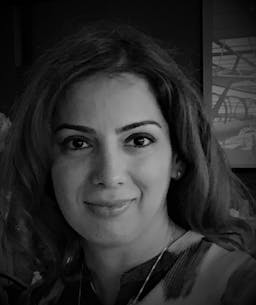“Religion is the Opium of Masses”
Mar 2, 2021
First story
Averroes had said once that using religion is the profitable trade in societies where ignorance is widespread. Unfortunately, the Iraqi government is aware that if they want to control the society to guarantee their continuous ruling and prohibit revolutionary thinking, they need to wrap every falsehood with a religious envelope and propaganda, and this is what is happening today in Iraq. The corrupt government’s agenda is to fight science and truth, while push for backwardness and ignorance, which has been spreading in the Iraqi culture and has always been the way to feed tyranny. Controlling and brainwashing people’s minds, with their agenda-operated rhetoric, and using/abusing the infidelity of the religious authority have been the strategies used by the corrupt parties and criminal militias for the last two decades.
The lie that the Iraqi people live is that religious references are far from interfering in political affairs and influencing the course of political events, but the facts have proven the opposite, that religious authorities are the main backbone affecting the political apparatus in Iraq. And it became clear that those who appoint the government are the high-profile religious figure, and they are also the ones who can change the government. The authority is religiously-driven and this is what happened to the corrupt figures, such as Al-Maliki, Al-Abadi, Adel Abdul Mahdi ... and others. But the people remain silent because of their orchestrated ignorance and fear implanted inside their culture, the fear of opposing religion and the implicit intentions of opposing God. If anyone speaks of this “issue”, they would be outsiders, rejected by the religious authority, any opponents of the religious-based government would become infidels, outsiders of the Shia sect. The Iraqi citizen is the one who gave the authority and the holiness to the religious figures, and eventually, the citizens became afraid of their authorities, like Al-Sistani more than afraid of the God they worship.
When the religious cleric entered the sphere of politics, he did not forget that he was a cleric who remained clinging to that and that one of the dangers of the religiously-ruled country is the mechanism by which those figures rule that country. The first issue of an islamicized government is that they speak in the name of God, which gives additional authority. Politicians usually do not speak in the name of God and this renders a difference, a higher agency of those religious authorities. The second problem is that if the religious politician becomes a decision-maker, they will exclude, discriminate against the other, the way the government is operating in Iraq is in the name of religion and not in the name of politics. The religious politician uses and abuses religion to “his” interest, and it will be much easier to impact the brains of ignorant people. Those authorities mislead and control by supporting sectarianism establishing a divisive apparatus to govern with, which is the shortest and fastest way to mobilize and manipulate the masses, and everything becomes in his favor, in his interest.
Those political religious authorities suffer from the syndrome of superiority over the rest of society members because they consider themselves superior, the elite, illusioned of supremacy, while benefiting from the materialistic earthly factors of power and money. The primary job of those figures is to fool the citizens in the name of God, being able to force obedience. In one example, when Khudair Al-Khuzaie was asked why the school curricula had been changed, the answer was that he took the responsibility of reforming the Iraqi mind. The religious politician does not accept the other, except when it is in his interest. He rejects coexistence if the other does not belong to his demagogue.
By instrumentalizing religion, the religious authorities in Iraq have become a threat to the nation; instead of forming a state that serves human rights, the corrupted government serves itself, rejecting diversity of beliefs, and convicting any dissimilar voices. In order for Iraq to have a better future, the first reform is the separation of religion from the state becomes essential.




